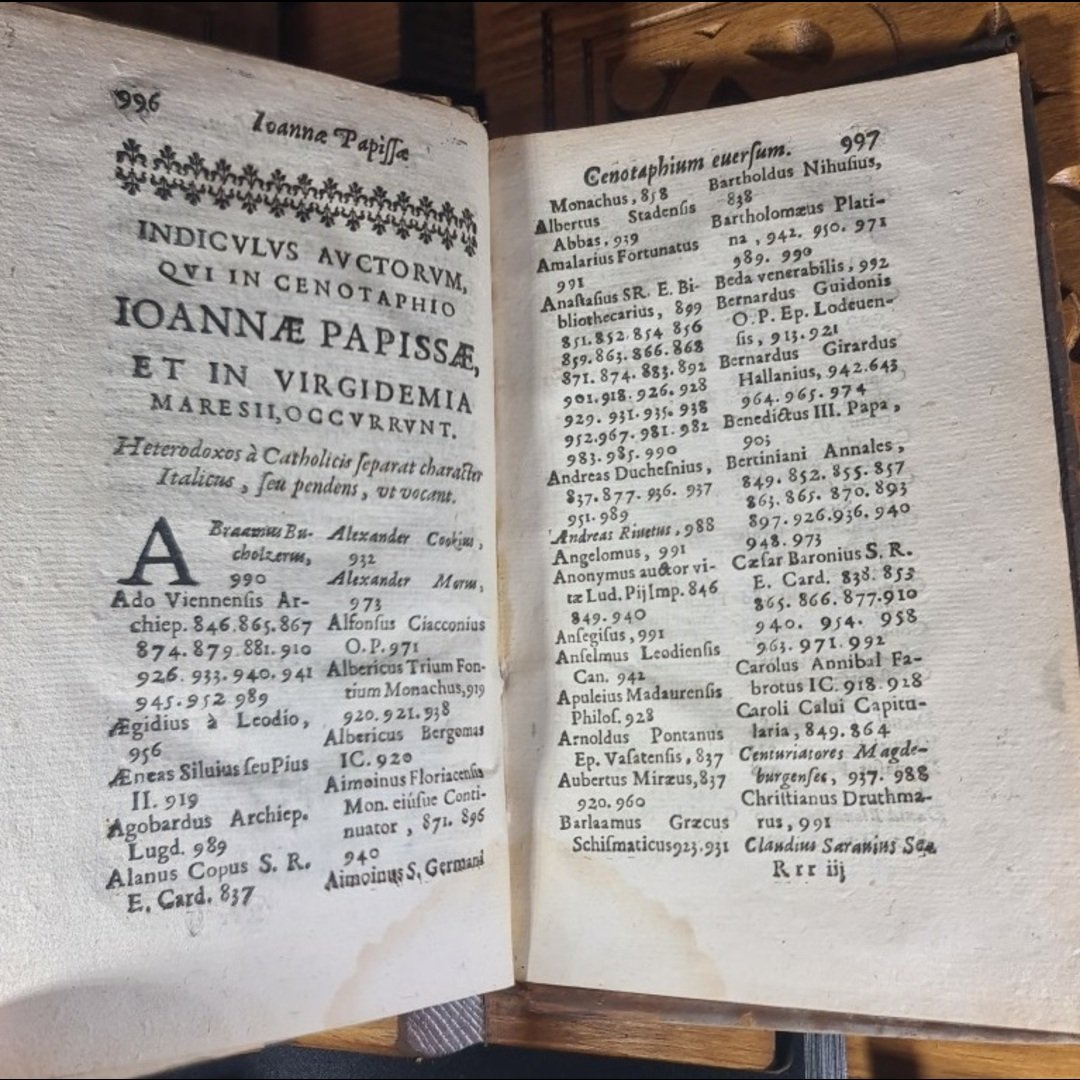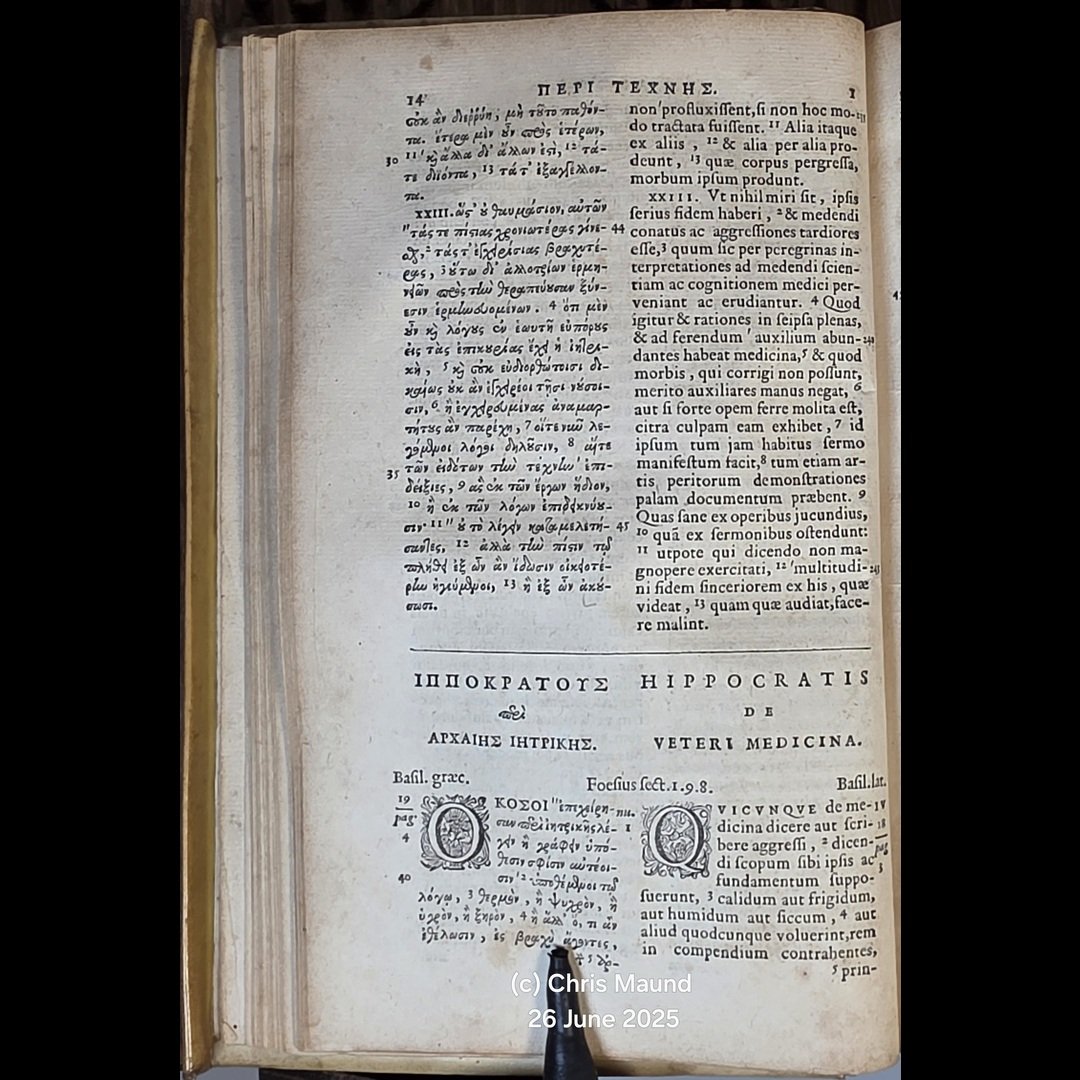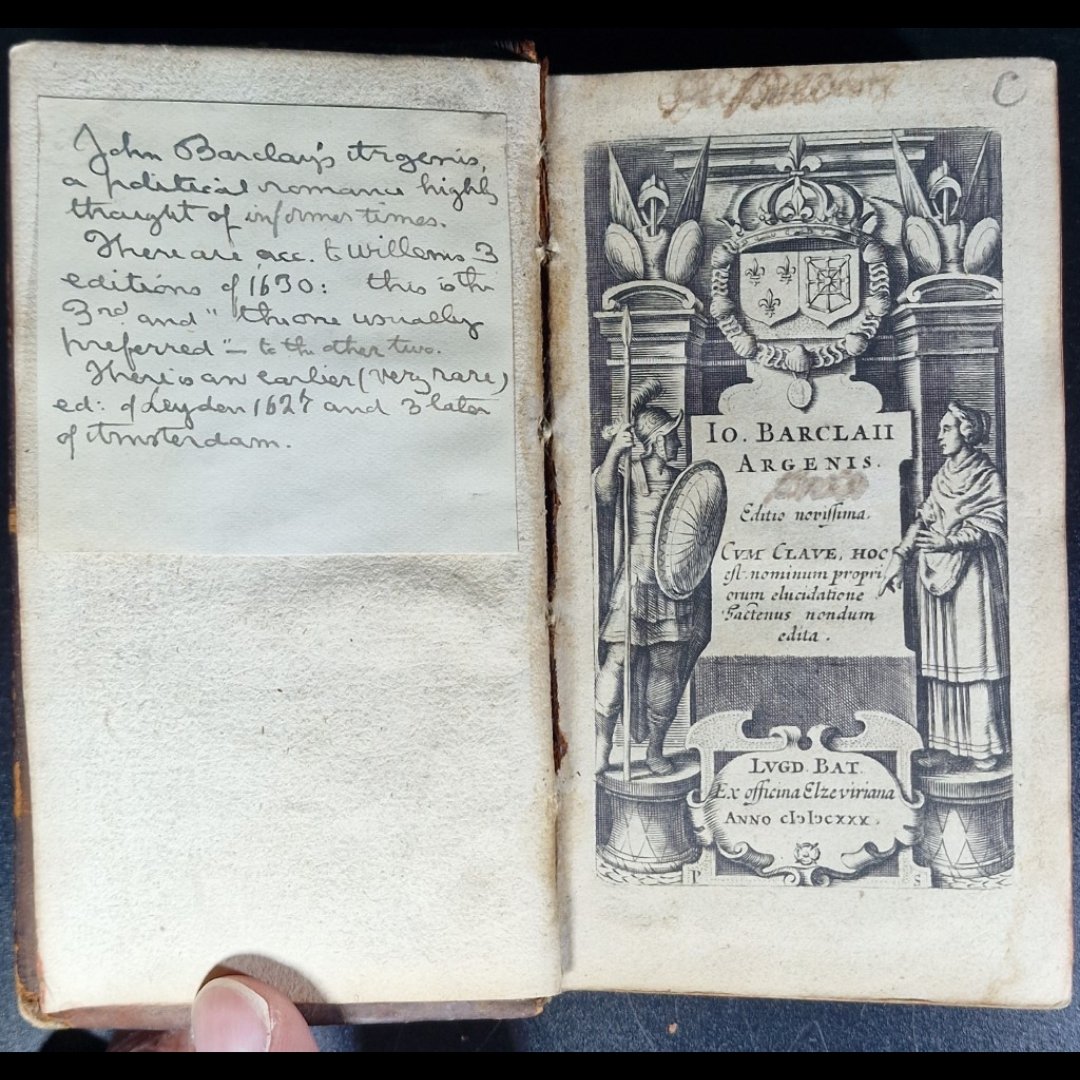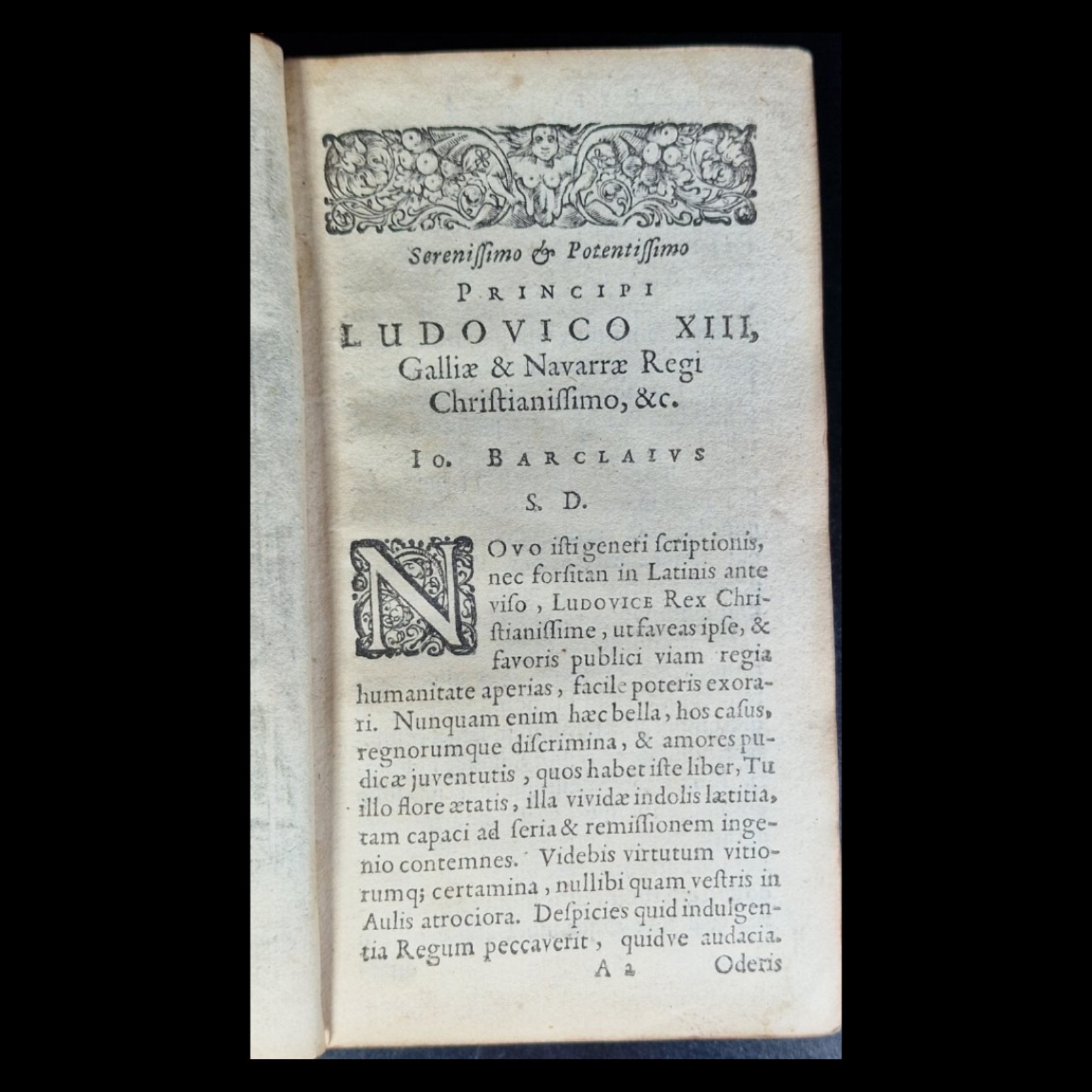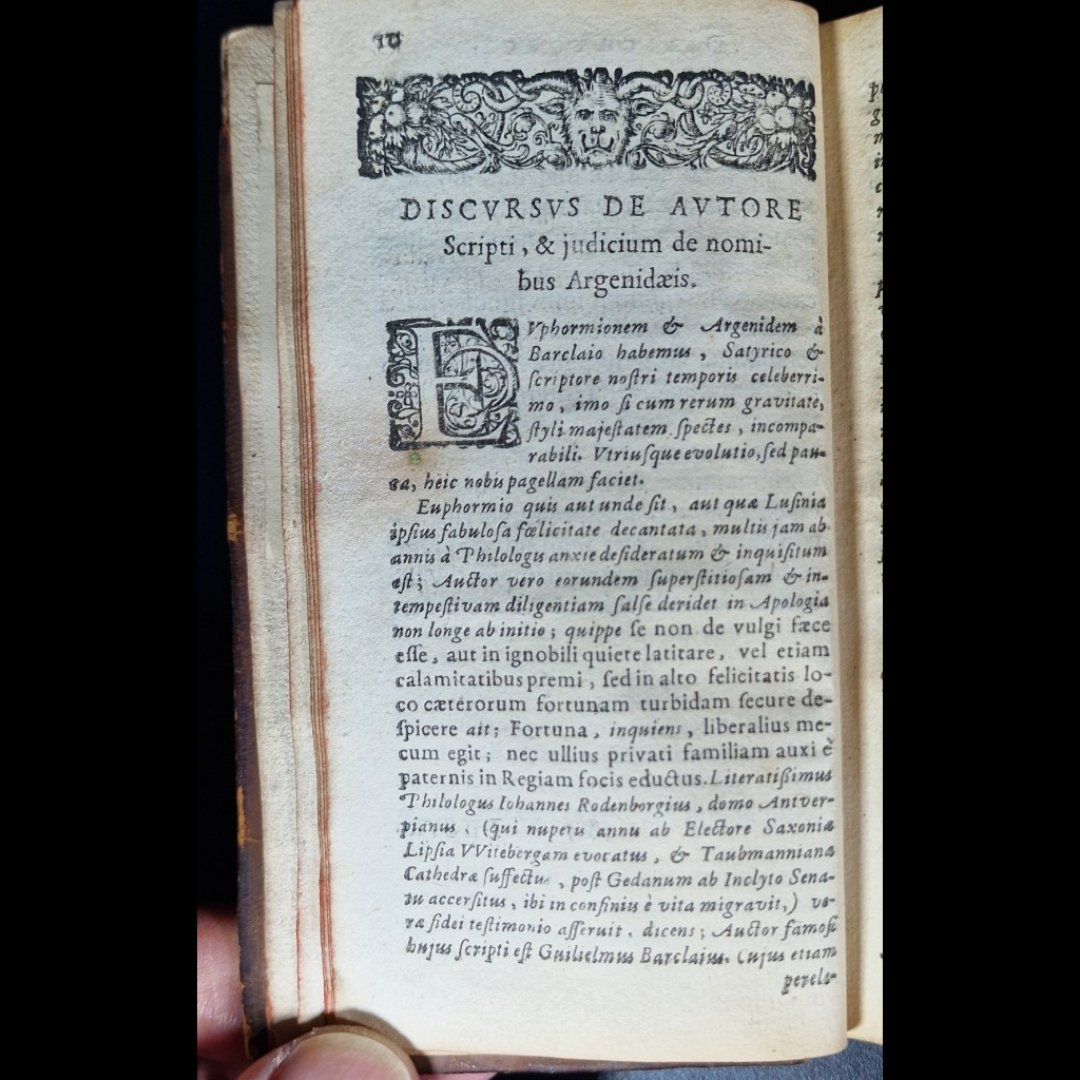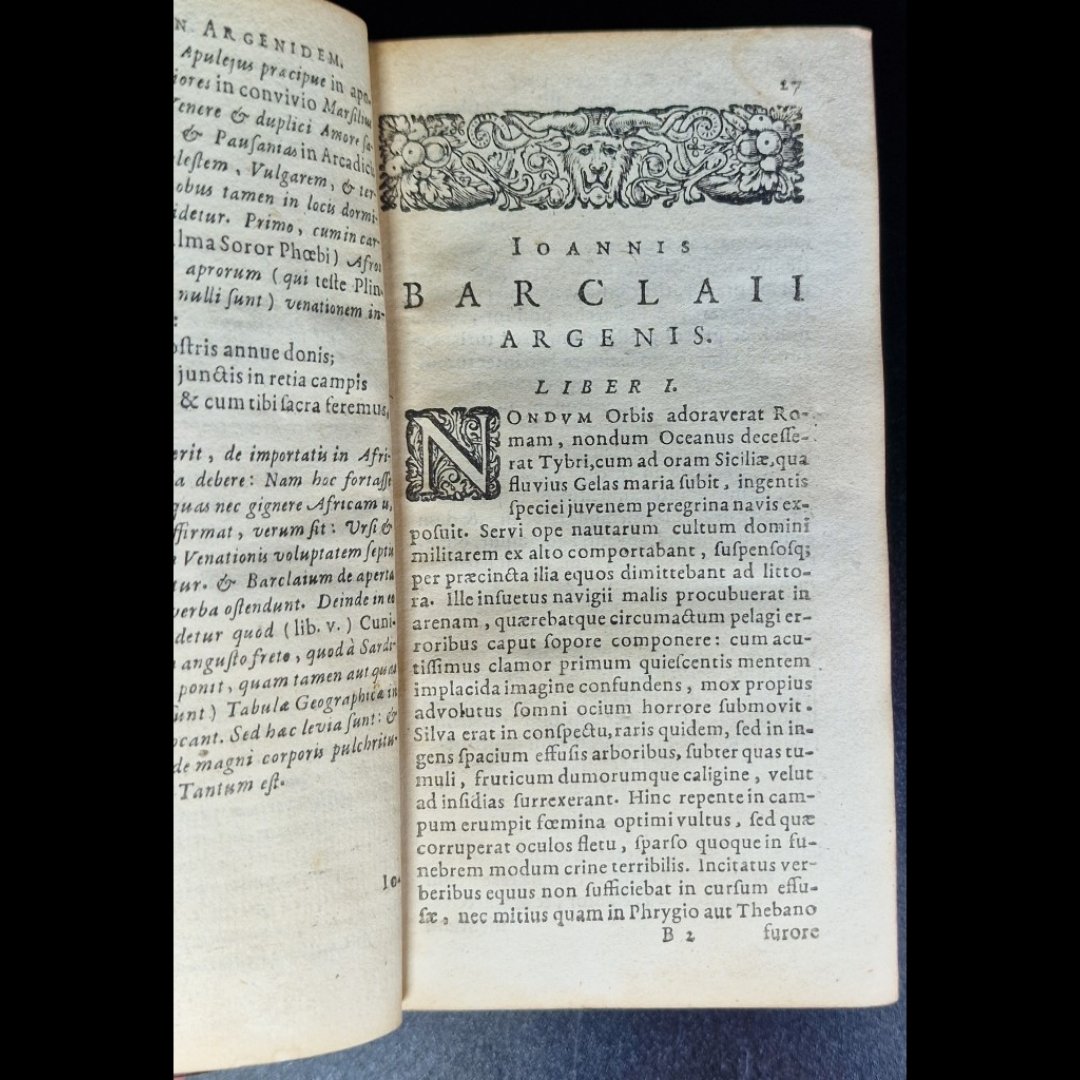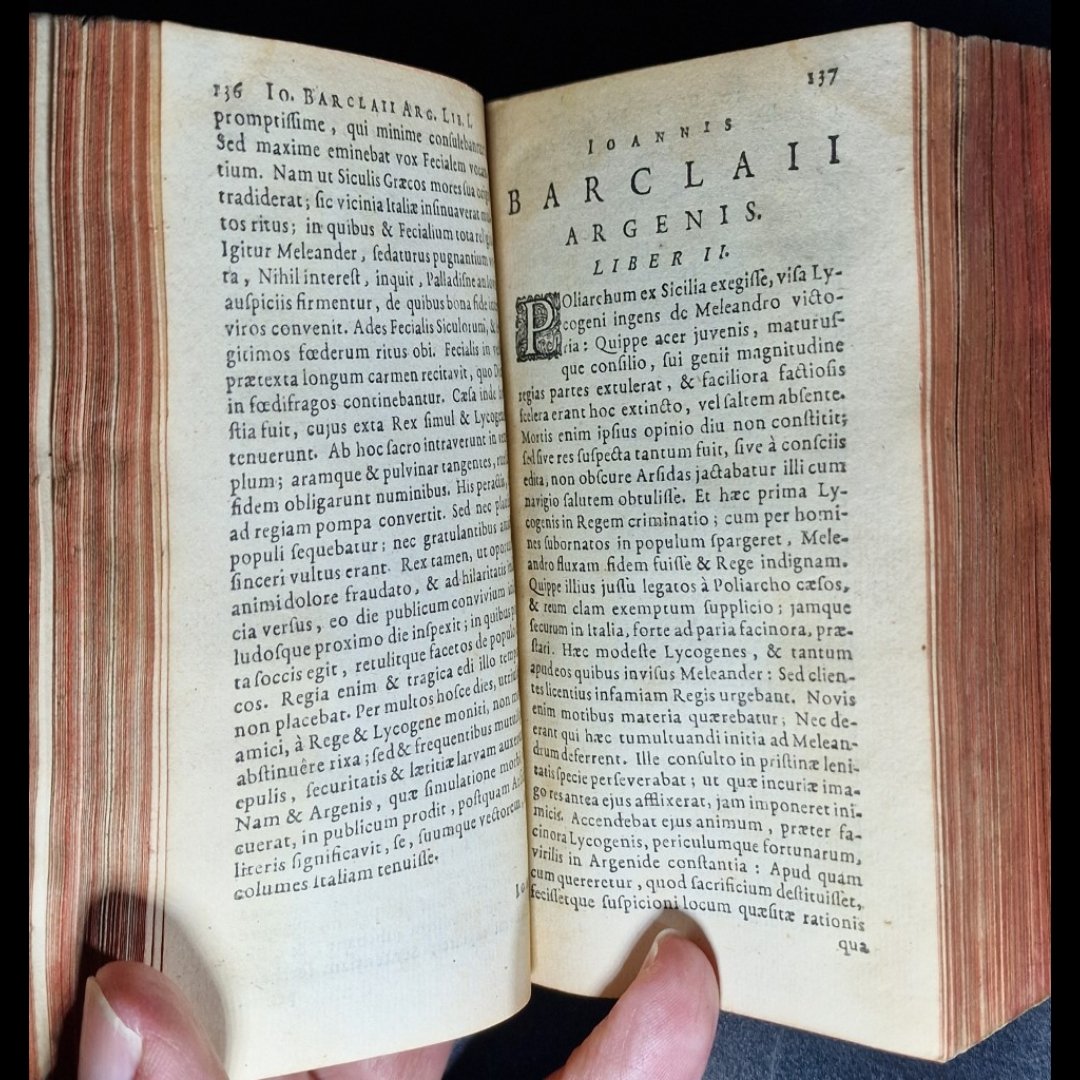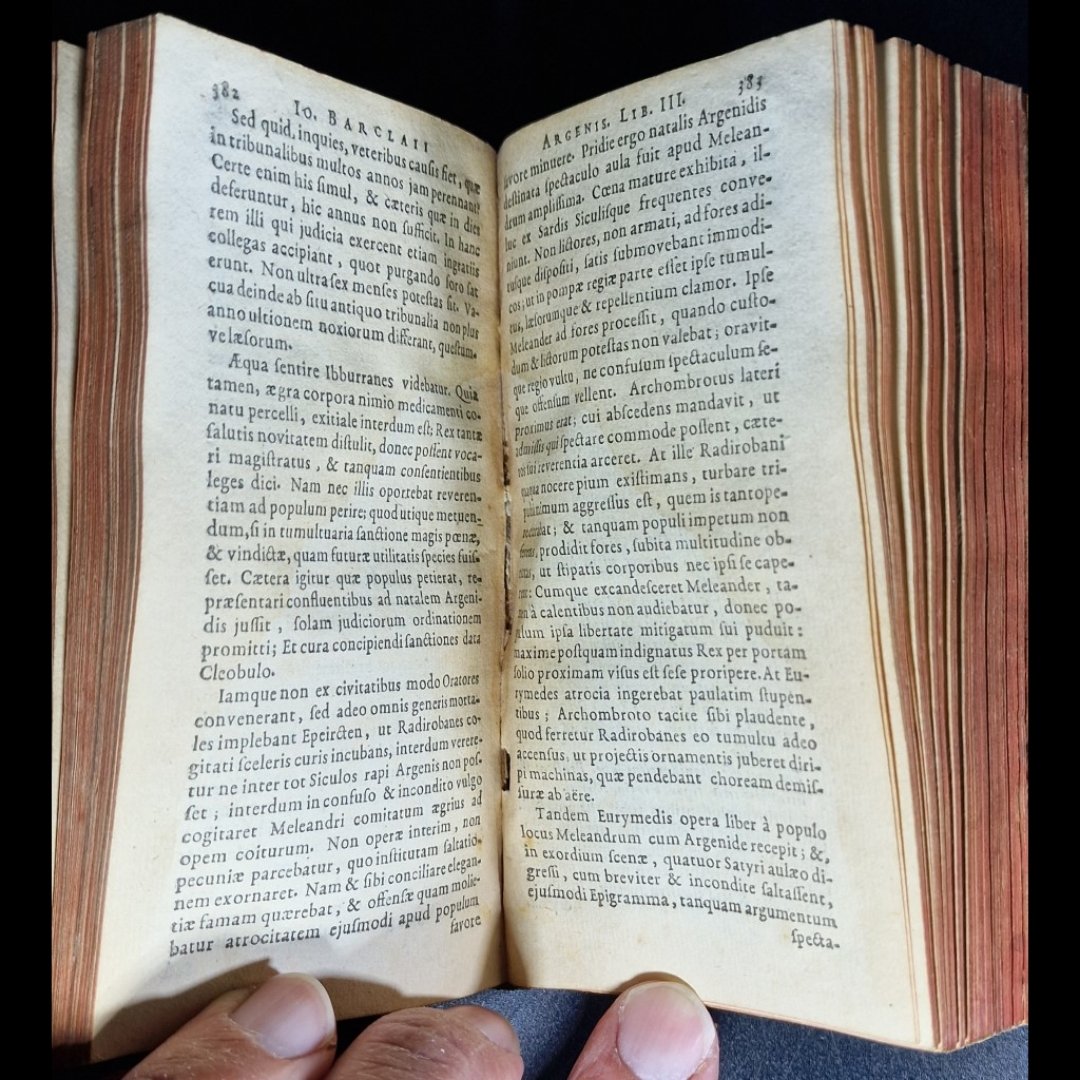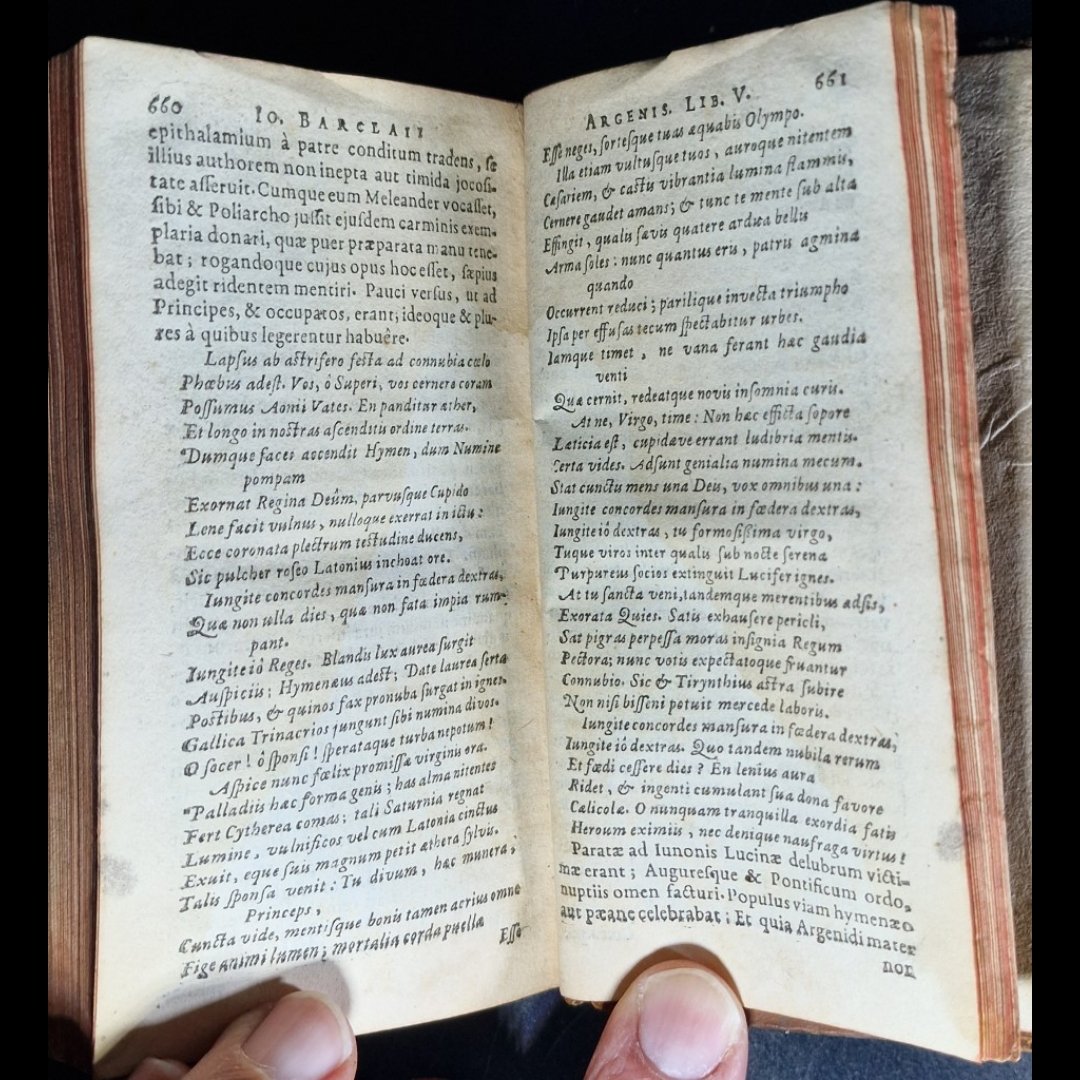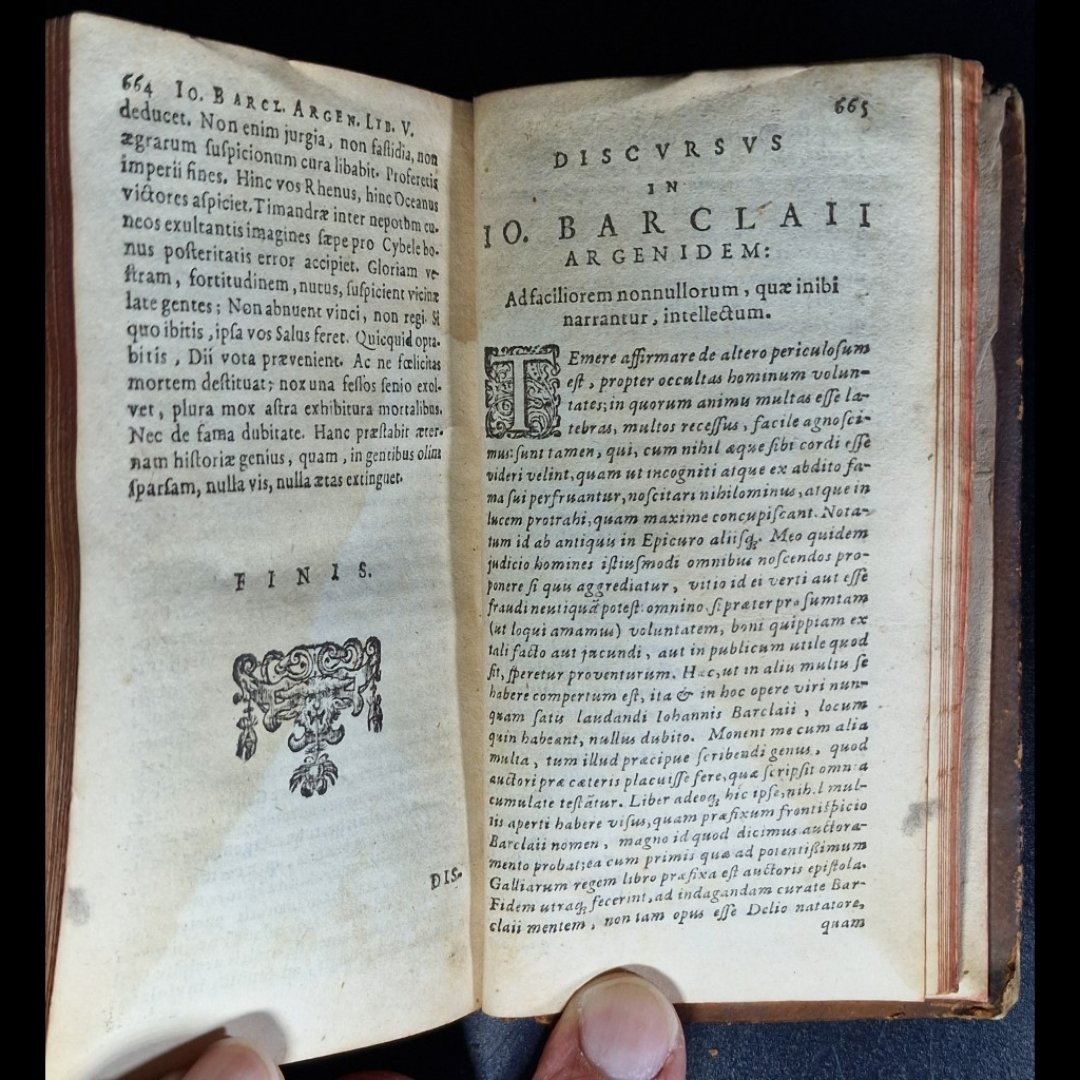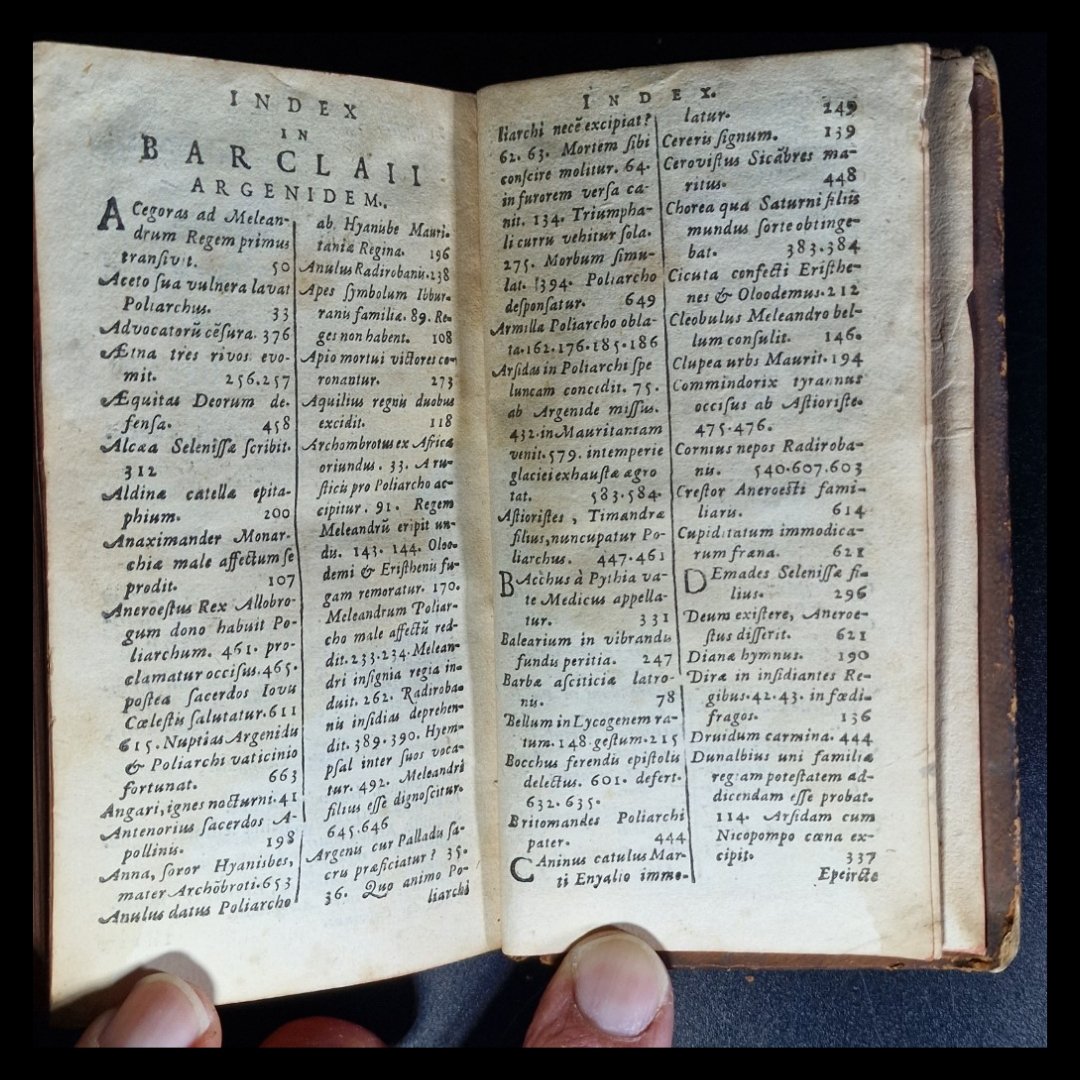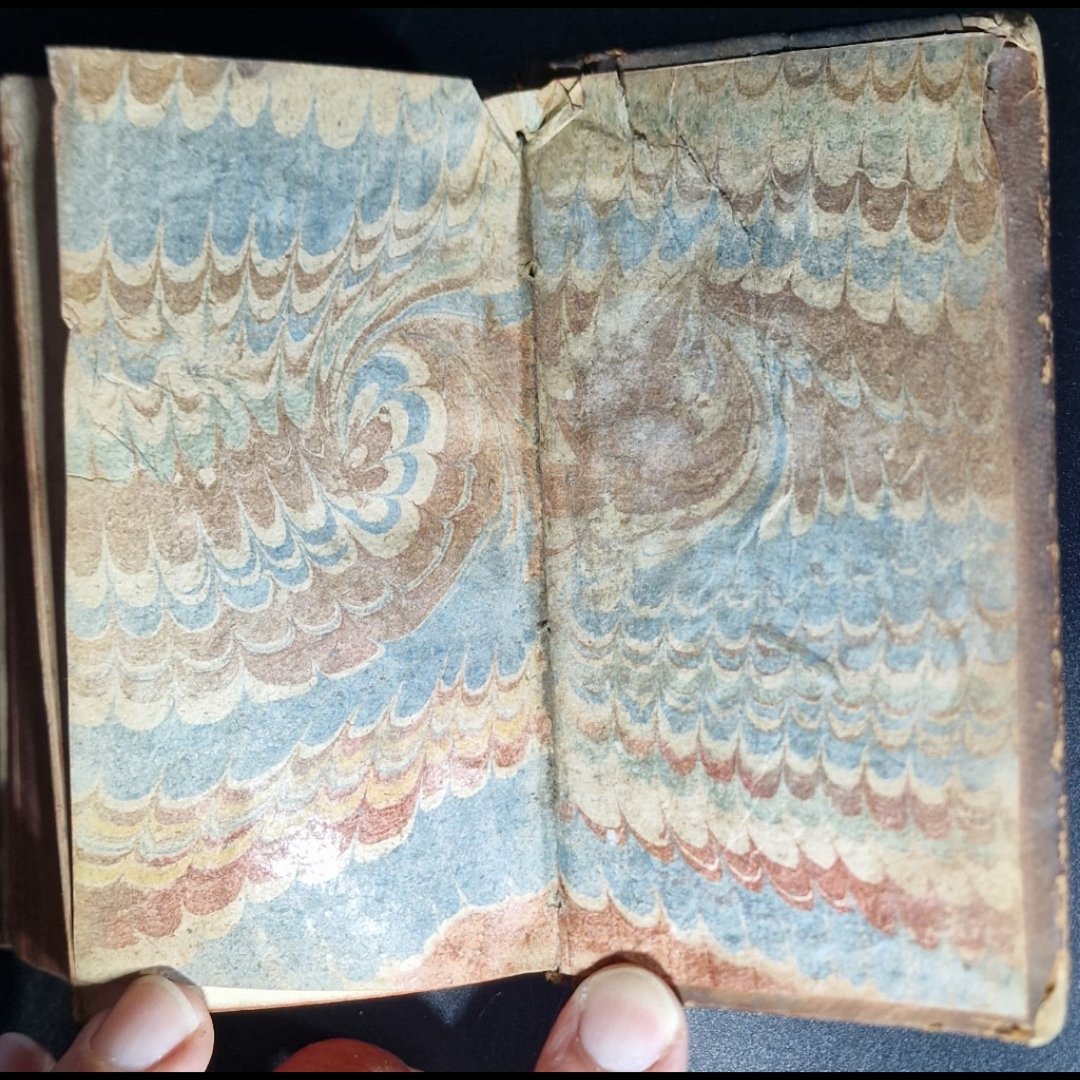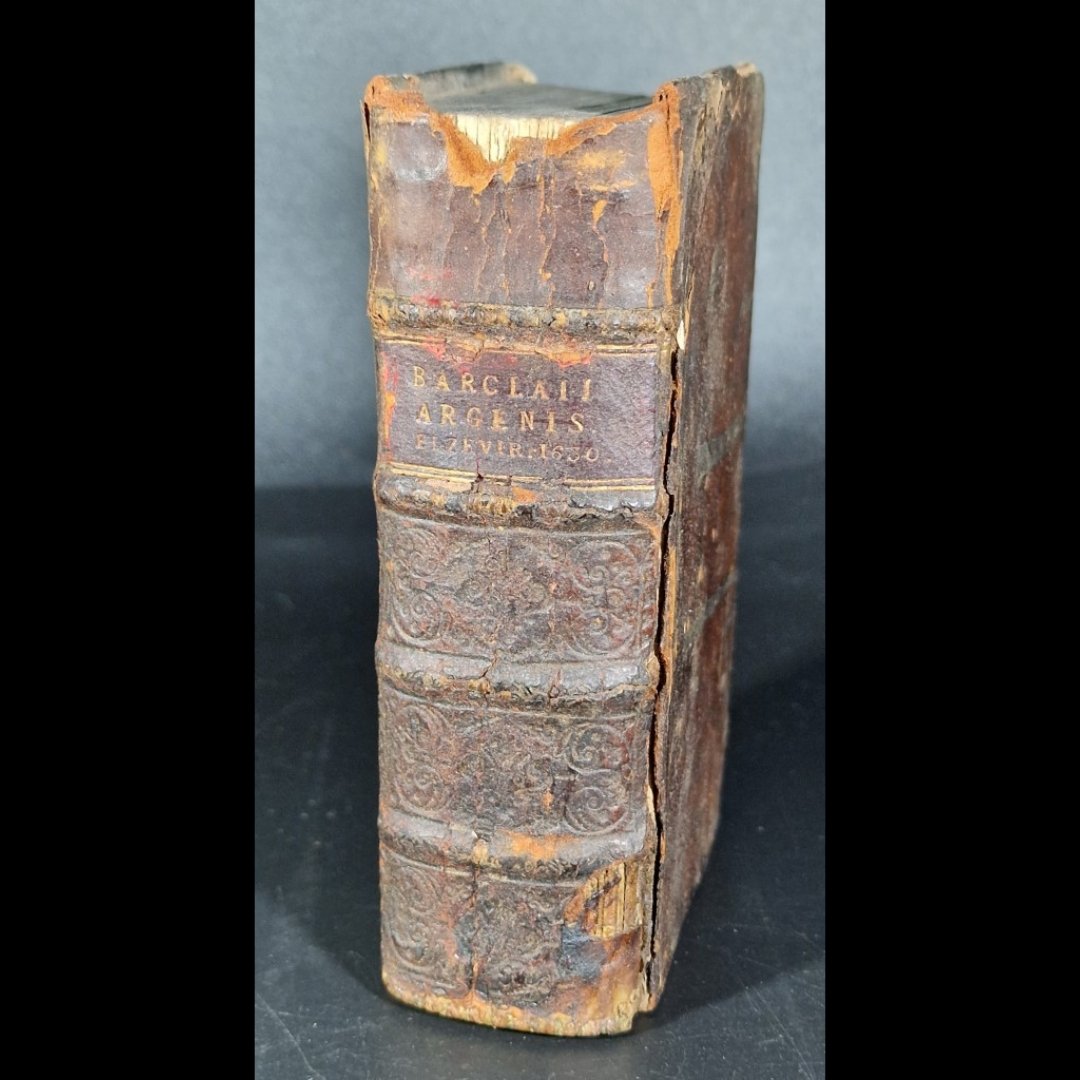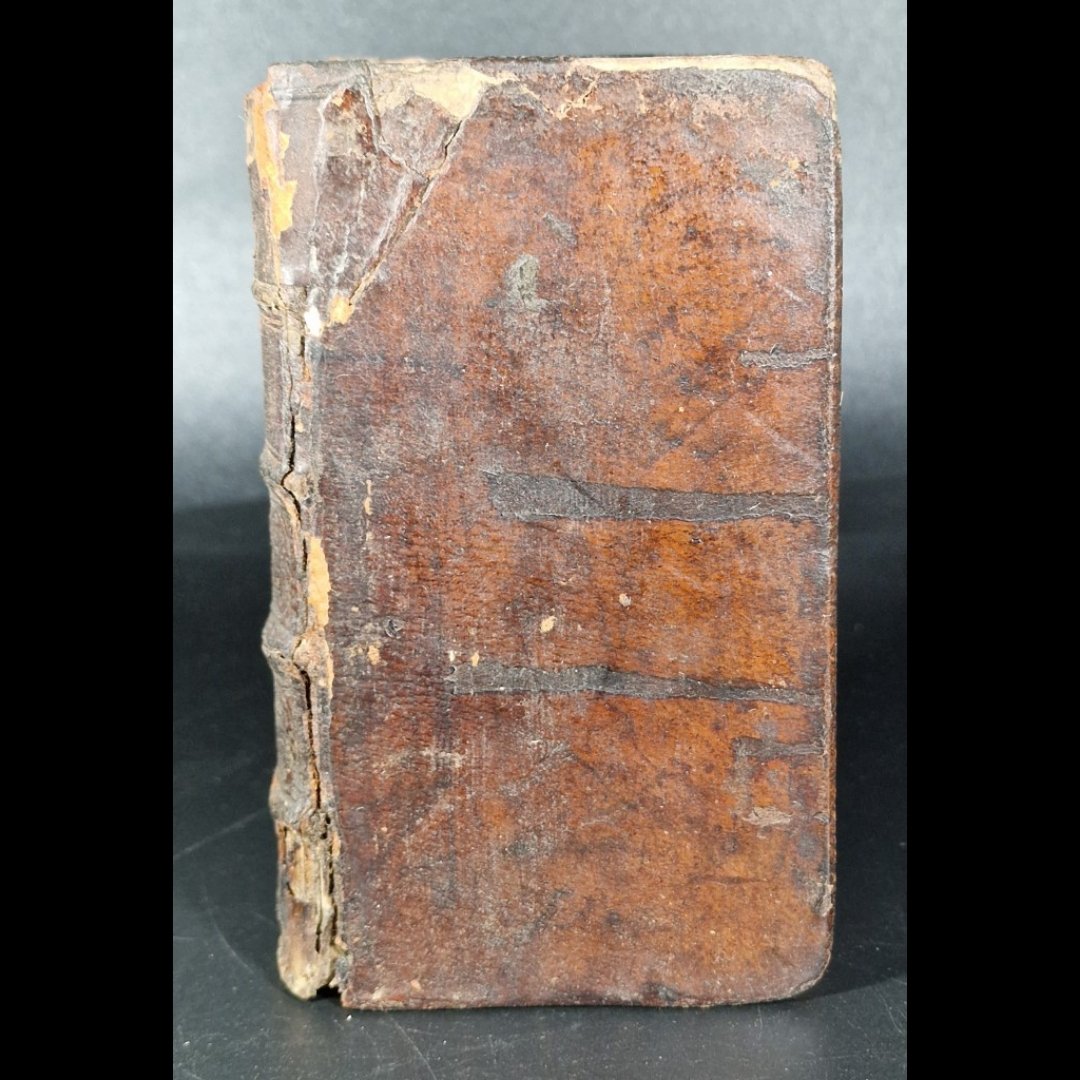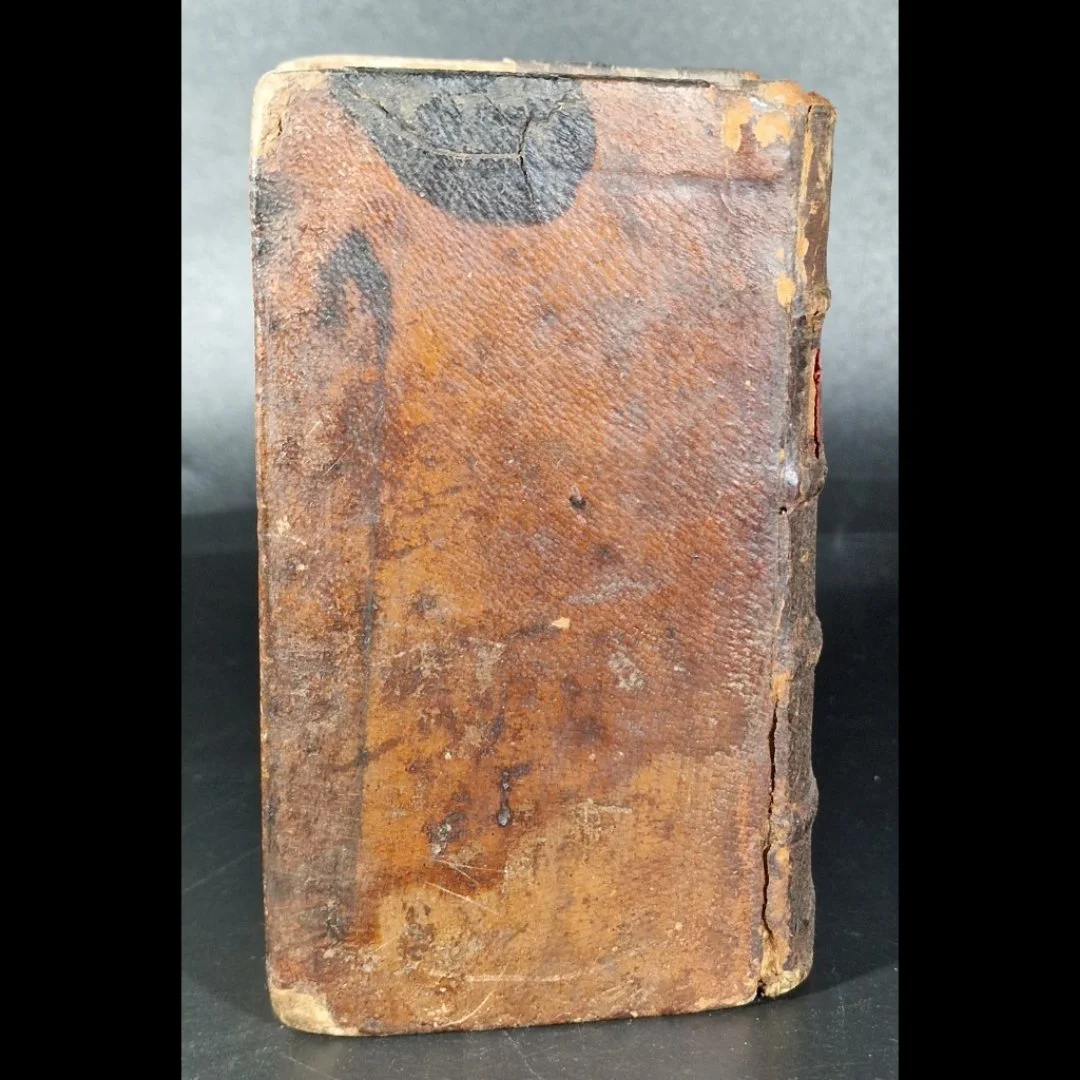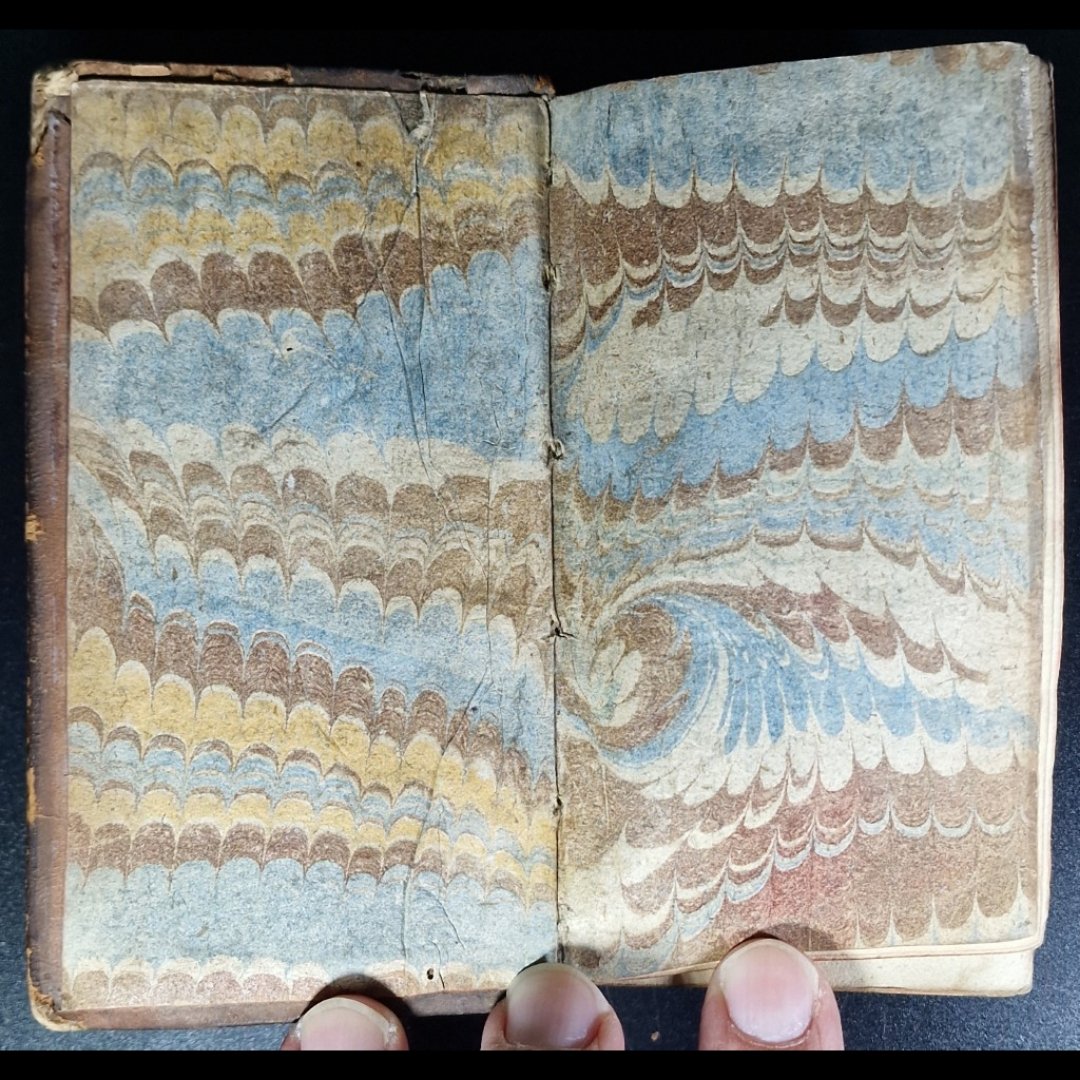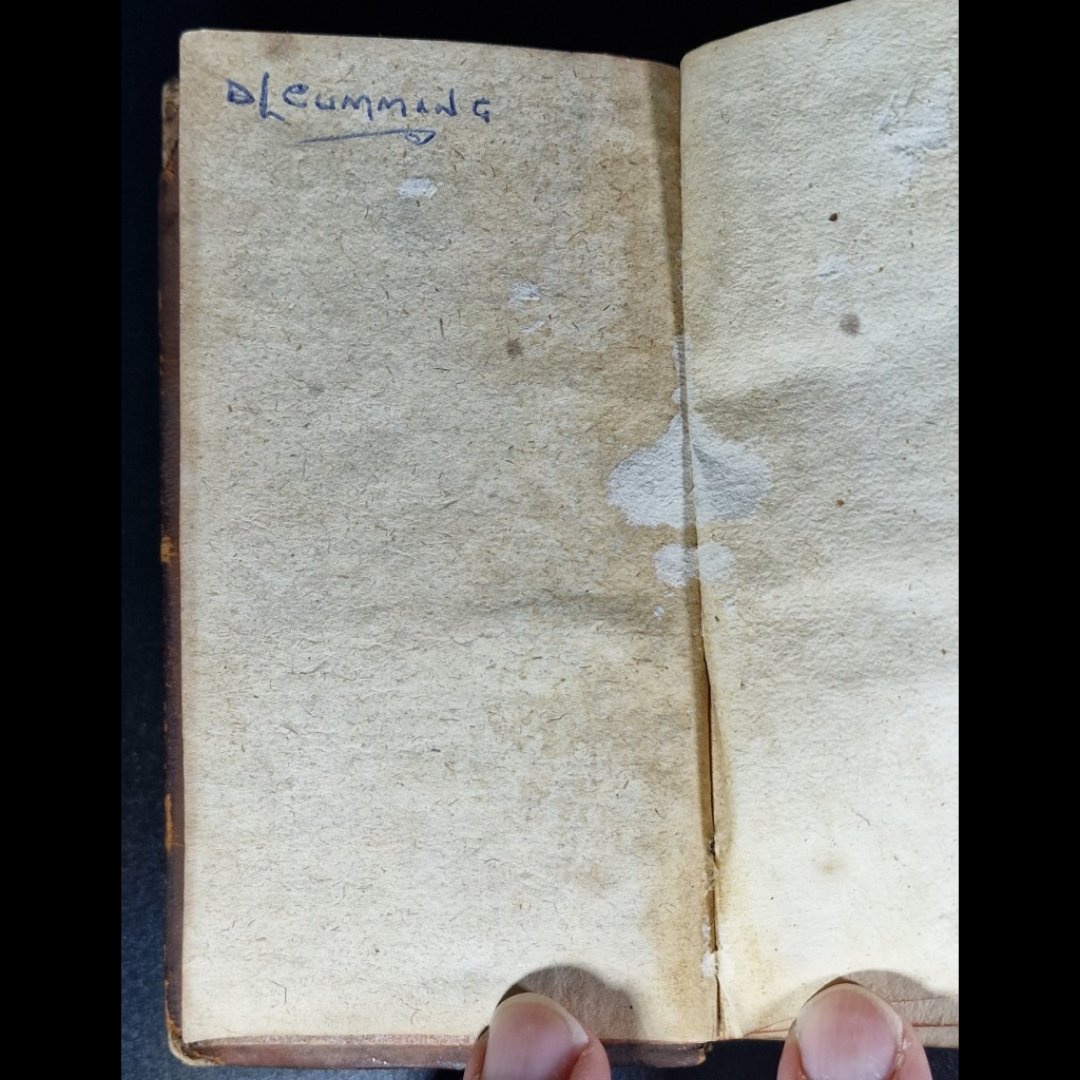 Image 1 of 19
Image 1 of 19

 Image 2 of 19
Image 2 of 19

 Image 3 of 19
Image 3 of 19

 Image 4 of 19
Image 4 of 19

 Image 5 of 19
Image 5 of 19

 Image 6 of 19
Image 6 of 19

 Image 7 of 19
Image 7 of 19

 Image 8 of 19
Image 8 of 19

 Image 9 of 19
Image 9 of 19

 Image 10 of 19
Image 10 of 19

 Image 11 of 19
Image 11 of 19

 Image 12 of 19
Image 12 of 19

 Image 13 of 19
Image 13 of 19

 Image 14 of 19
Image 14 of 19

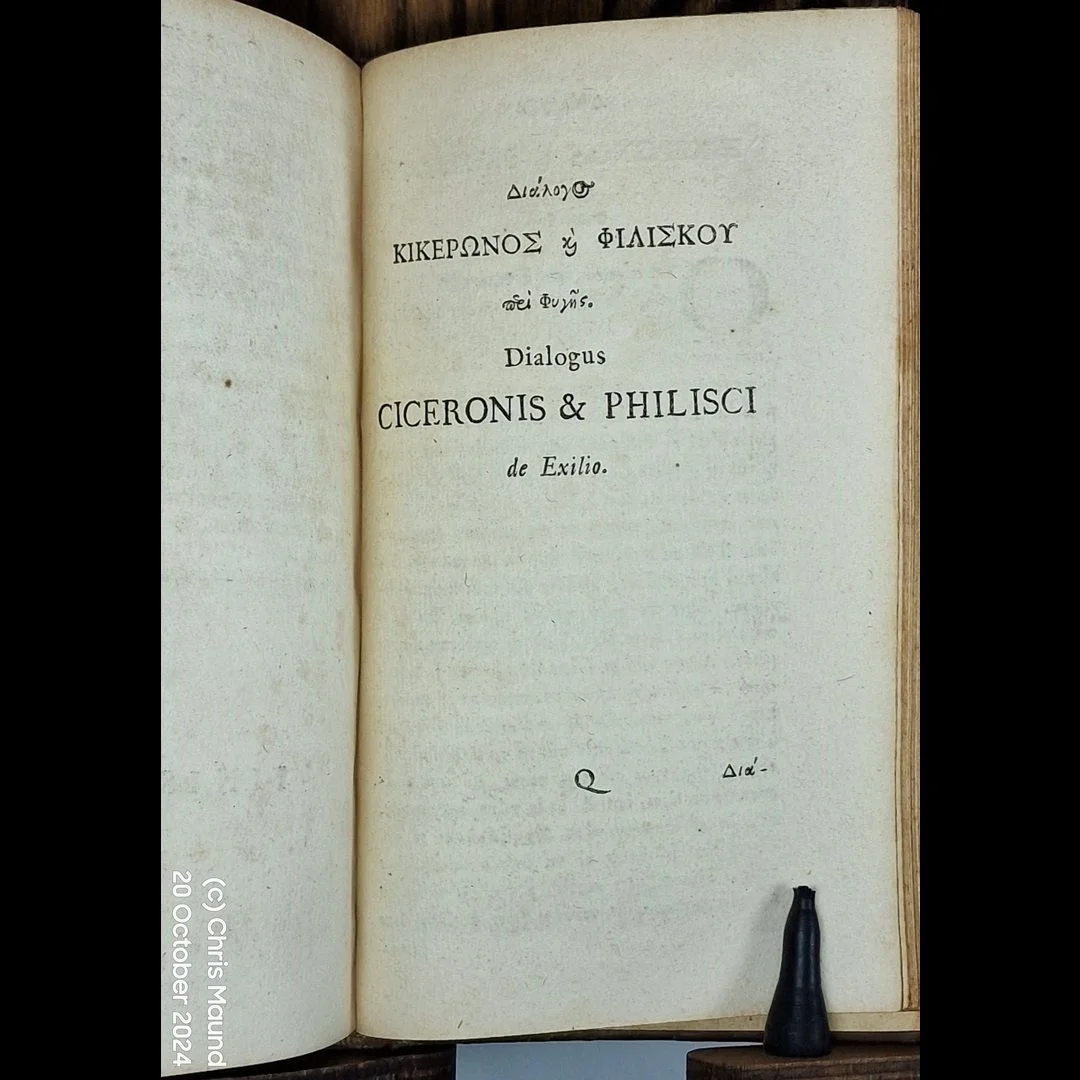 Image 15 of 19
Image 15 of 19

 Image 16 of 19
Image 16 of 19

 Image 17 of 19
Image 17 of 19

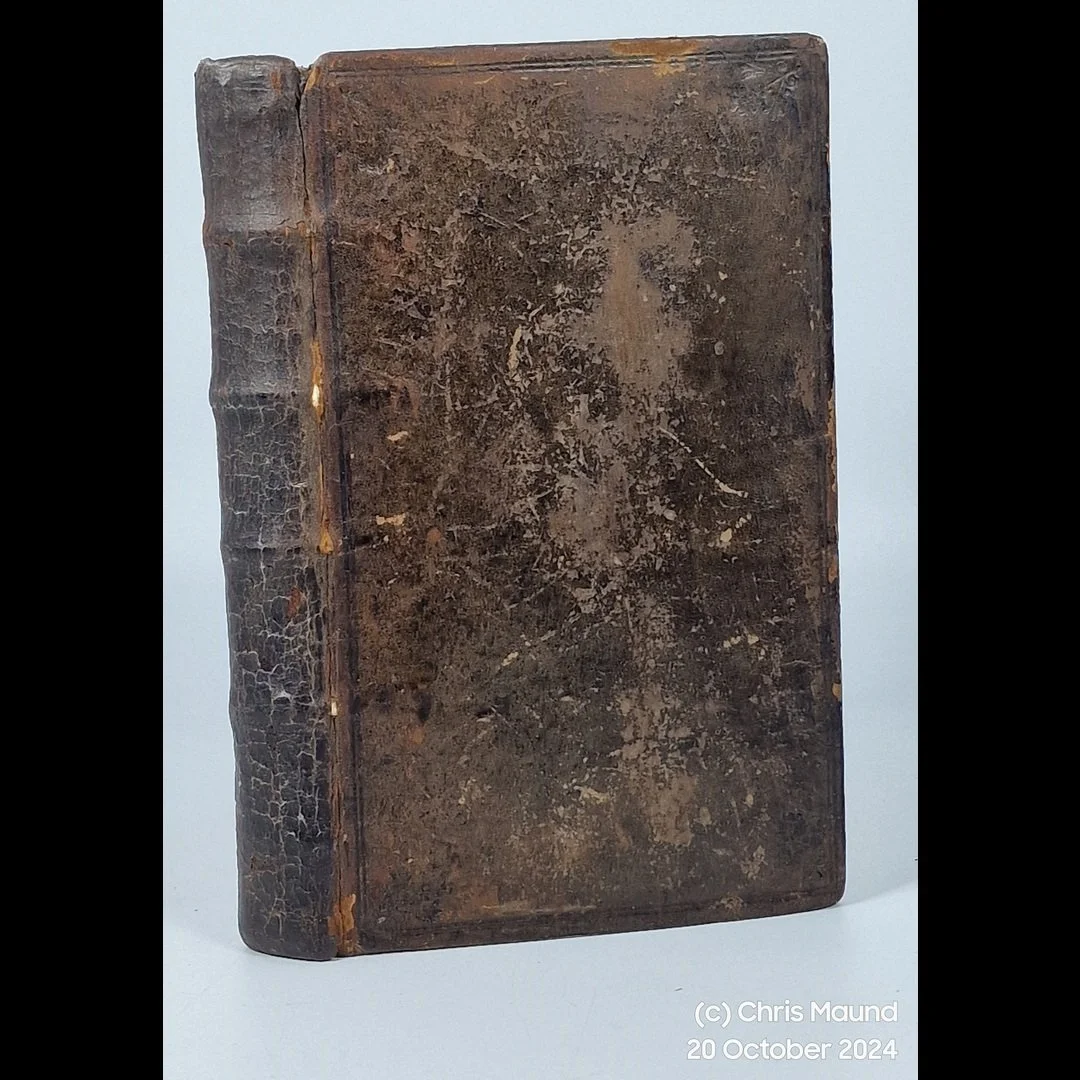 Image 18 of 19
Image 18 of 19

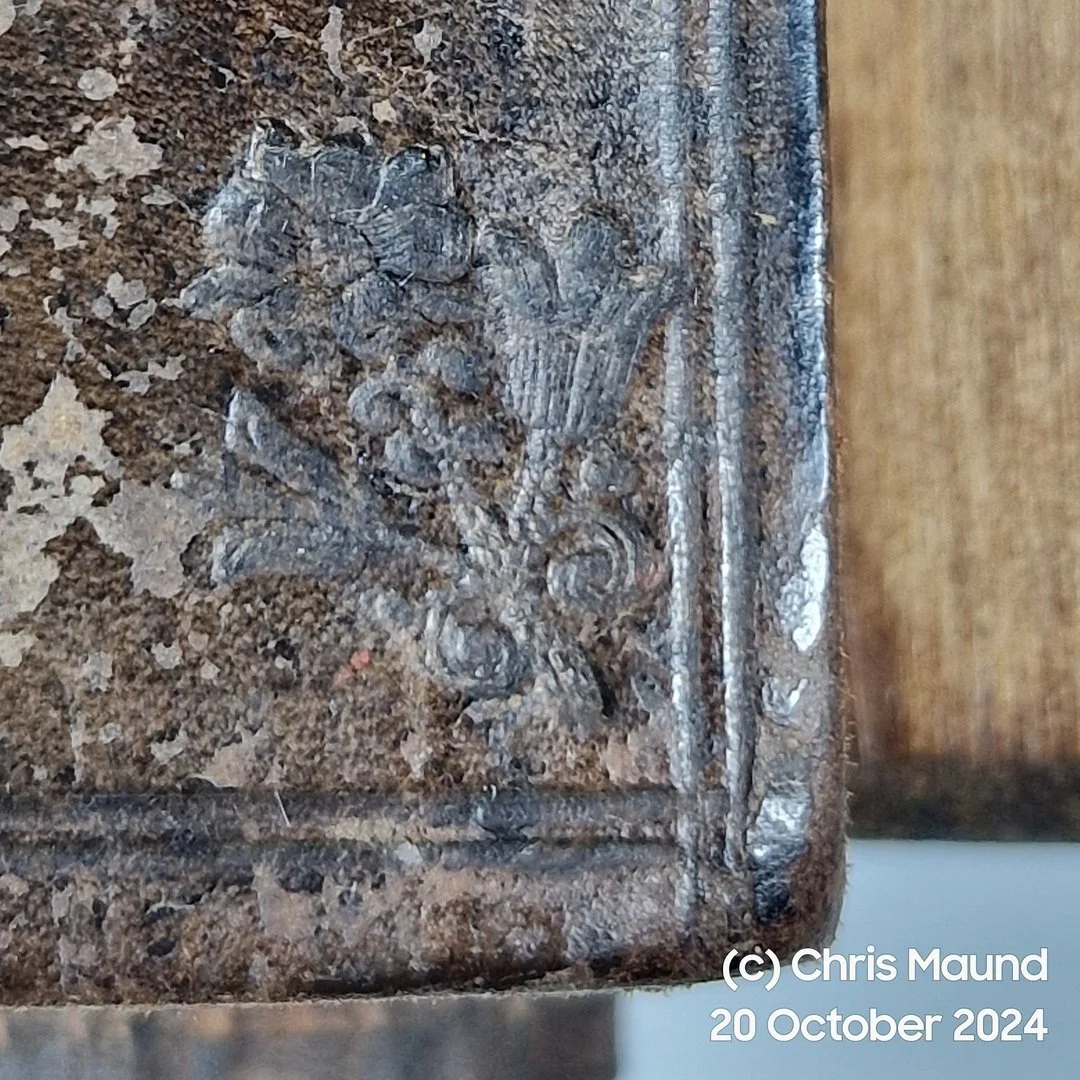 Image 19 of 19
Image 19 of 19




















1680 1st Edtn (Thus) With Provenance ENCHIRIDION (WITH CEBES, THEOPHRASTUS, PRODICUS & SPURIOUS DE EXILIO) — EPICTETUS ET AL. By Good Philosophy
1680 1st Edition (Thus) , With Provenance
ENCHIRIDION (WITH CEBES, THEOPHRASTUS, PRODICUS & SPURIOUS DE EXILIO) — EPICTETUS ET AL.
Prodici Hercules, et M. T. Ciceronis de Exilio Dialogus. Cum versione Latina. Denuo recognita & notis illustrata.
Format: Hardcover, duodecimo or twelvemo (12mo 5 × 7+3⁄8 127 × 187),Pages
Language: Greek/Latin
Dust Jacket: No Jacket, Dust Jacket Condition: No Jacket
Published By: e Theatro Sheldoniano (Sheldonian), Oxford
Synopsis: Contains several foundational classical moral and philosophical texts in Greek and Latin parallel, typically used for university instruction:
Epictetus – Enchiridion (“The Handbook”) - A Stoic manual on ethics, virtue, and self-control, compiled by his student Arrian.
Cebes of Thebes – Tabula (“The Tablet”) - An allegorical dialogue describing a symbolic picture representing human life, moral education, and philosophical progress.
Theophrastus – Characteres Ethici (“Ethical Characters”) - A series of moral sketches describing different human vices and follies — a forerunner to modern character psychology.
Prodicus – Hercules (Hercules at the Crossroads) - A Socratic allegory describing Hercules choosing between Virtue and Vice.
Cicero – De Exilio (On Exile) - A pseudo-Ciceronian moral dialogue concerning exile and philosophical endurance.
The text was likely prepared by an Oxford don (possibly John Hudson, who edited similar texts later in the 1690s).
Sandys armorial ex-libris (Barons Sandys family); substantive early Greek marginalia, suggesting academic use.
SKU: BTETM0002457
Approximate Package Dimensions H: 12.5, L: 30, W: 25 (Units: cm), W: 2Kg
1680 1st Edition (Thus) , With Provenance
ENCHIRIDION (WITH CEBES, THEOPHRASTUS, PRODICUS & SPURIOUS DE EXILIO) — EPICTETUS ET AL.
Prodici Hercules, et M. T. Ciceronis de Exilio Dialogus. Cum versione Latina. Denuo recognita & notis illustrata.
Format: Hardcover, duodecimo or twelvemo (12mo 5 × 7+3⁄8 127 × 187),Pages
Language: Greek/Latin
Dust Jacket: No Jacket, Dust Jacket Condition: No Jacket
Published By: e Theatro Sheldoniano (Sheldonian), Oxford
Synopsis: Contains several foundational classical moral and philosophical texts in Greek and Latin parallel, typically used for university instruction:
Epictetus – Enchiridion (“The Handbook”) - A Stoic manual on ethics, virtue, and self-control, compiled by his student Arrian.
Cebes of Thebes – Tabula (“The Tablet”) - An allegorical dialogue describing a symbolic picture representing human life, moral education, and philosophical progress.
Theophrastus – Characteres Ethici (“Ethical Characters”) - A series of moral sketches describing different human vices and follies — a forerunner to modern character psychology.
Prodicus – Hercules (Hercules at the Crossroads) - A Socratic allegory describing Hercules choosing between Virtue and Vice.
Cicero – De Exilio (On Exile) - A pseudo-Ciceronian moral dialogue concerning exile and philosophical endurance.
The text was likely prepared by an Oxford don (possibly John Hudson, who edited similar texts later in the 1690s).
Sandys armorial ex-libris (Barons Sandys family); substantive early Greek marginalia, suggesting academic use.
SKU: BTETM0002457
Approximate Package Dimensions H: 12.5, L: 30, W: 25 (Units: cm), W: 2Kg
Good - Contemporary full calf, blind-stamped with floral corner ornaments. Early armorial bookplate “Lord Sandys” on front pastedown (the Sandys of Ombersley; eighteenth-century hand). Old scholarly annotations/emendations in a neat hand on the front blank and occasional marginalia—useful evidence of academic use. Early price mark in graphite on the same leaf. Binding worn and scuffed; joints with short cracks but holding; corners bumped. Leaf edges toned; scattered foxing and the usual faint damp-mottling to prelims; one leaf with a small corner chip (not touching text). A good, complete copy with appealing provenance.
The final item, De Exilio, is traditionally printed under Cicero’s name but is pseudepigraphic; inclusion here is typical of 17th-century Oxford school editions issued under the Sheldonian Press (Bishop John Fell’s regime).
PP [12], 99, [1], 79, [1], 25, [2], 12, 9 p.; 12mo
ESTC: R234821
Wing E3148
Please see photos as part of condition report































